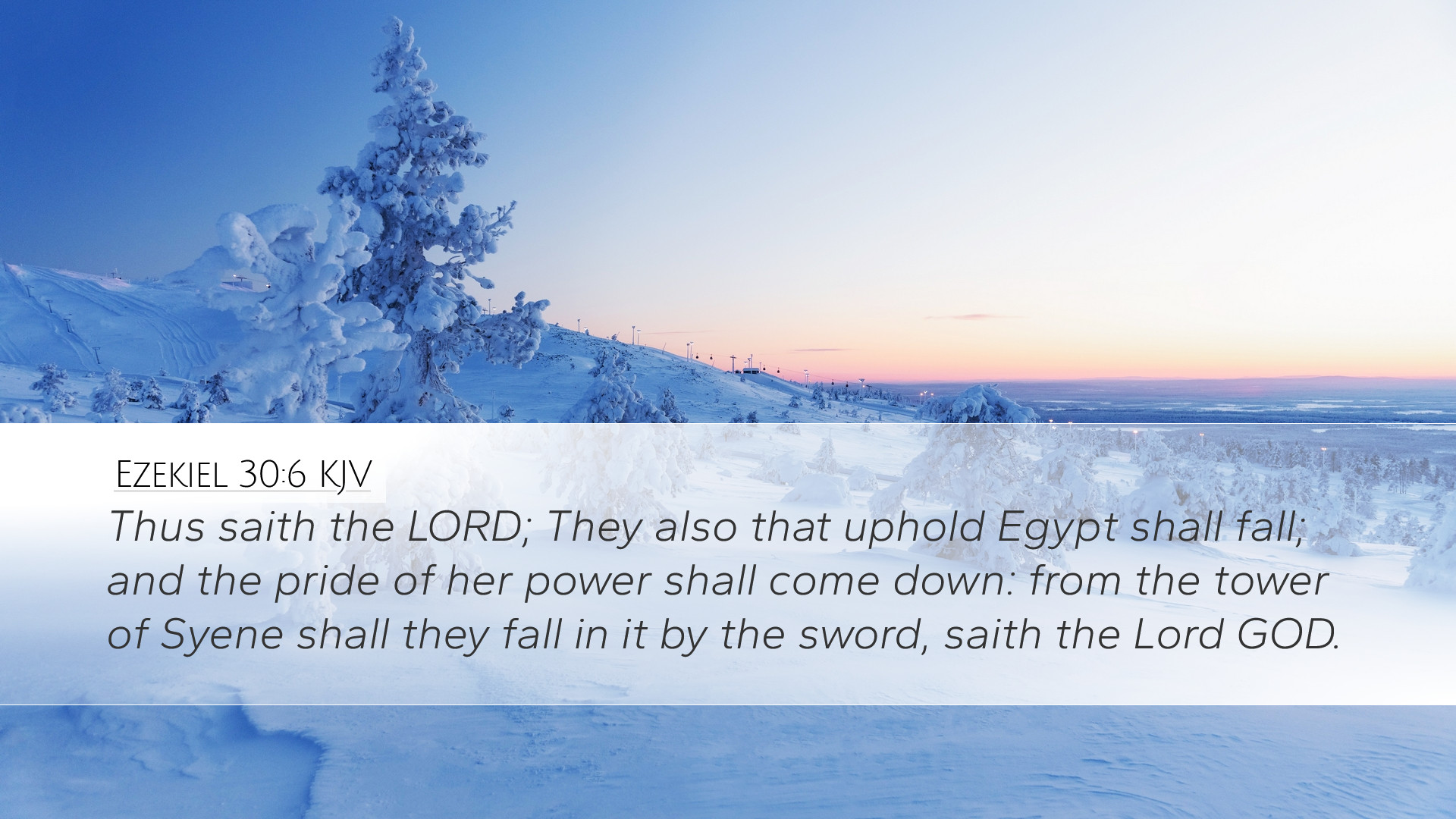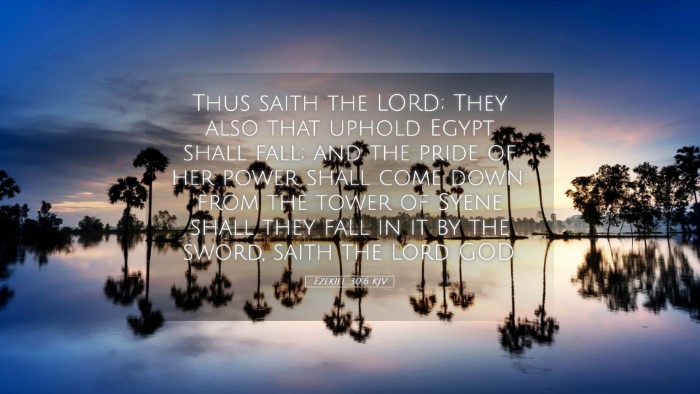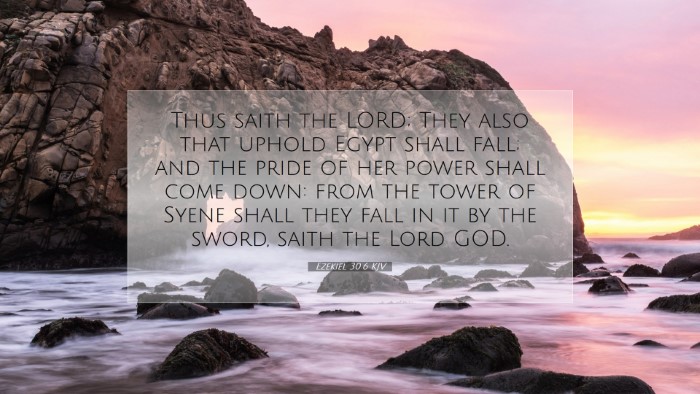Ezekiel 30:6 - Commentary and Insights
Verse (Ezekiel 30:6): "Thus saith the Lord; They also that uphold Egypt shall fall; and the pride of her power shall come down: from the tower of Syene shall they fall in it by the sword, saith the Lord God."
Context and Background
The Book of Ezekiel is set during a time of impending judgment upon Jerusalem and the surrounding nations. Ezekiel serves as a prophet in the Babylonian exile, conveying God’s messages of warning, judgment, and hope. In this passage, God addresses the nation of Egypt, emphasizing its coming downfall due to arrogance and reliance on military might.
Analysis of Key Themes
- The Fall of Egypt: This verse marks a divine proclamation against Egypt—a powerful nation known for its military strength and influence in the ancient world. God asserts that those who support Egypt will meet a similar fate, indicating that reliance on worldly powers is futile.
- Pride and Power: The mention of "the pride of her power" highlights a central theme: the dangers of pride. Throughout scripture, pride often leads to a downfall (Proverbs 16:18). This serves as a warning against any nation or individual who places confidence in their own strength rather than in God.
- The Sword and Judgment: The imagery of falling by the sword foreshadows violence and defeat. God's judgments are often executed through such means, emphasizing that He is sovereign over even the outcomes of warfare.
Commentators' Insights
Matthew Henry's Commentary: Henry notes that God's judgment on Egypt serves as a reminder of the instability of nations that reject His sovereignty. He emphasizes the point that Egypt's false security in their own strength will be shattered. The imagery of “falling” denotes both a literal and metaphorical decline—from a position of strength to one of vulnerability—and calls all nations to recognize that ultimate power belongs to God.
Albert Barnes' Notes: Barnes expands on the implications of the phrase "uphold Egypt" by discussing the allies and nations that look to Egypt for support. He cautions that not only will Egypt fall, but so will those who place their trust in it. This creates a broader warning about the interconnectedness of nations and the consequences of misplaced trust.
Adam Clarke's Commentary: Clarke highlights the geographical references from Syene to emphasize the comprehensive nature of God's judgment. He reinforces the idea that no place of refuge will save them, as judgment will reach every corner of Egypt, illustrating the extent of God’s sovereignty and the inevitability of His plans being fulfilled.
Theological Implications
This verse has profound theological significance, particularly concerning God's sovereignty, justice, and the nature of prophetic warning. It challenges readers—pastors, theologians, and laypersons alike—to reflect on where they place their trust. The tendency to rely on worldly powers—be it military, economic, or political—stands in contrast to the call for divine reliance.
Moreover, God’s dealings with nations can be viewed through a lens of grace and judgment. Even as He proclaims judgment on Egypt, there remains an opportunity for repentance and return to His ways. This dual theme resonates throughout scripture and serves as a critical reminder of God's desire for all to come to Him.
Practical Applications
- Trust and Sovereignty: Believers are encouraged to place their trust in God rather than in political or military might. This can be particularly meaningful for those in church leadership who may face societal pressures.
- Humility: The warning against pride serves as an important trait for spiritual leaders. Pastors are called to remain humble and recognize that all true power belongs to God.
- Intercession for Nations: The passage invites readers to pray for nations today, reflecting on the spiritual state of nations and the leadership that governs them.
Conclusion
In conclusion, Ezekiel 30:6 serves as a powerful reminder of the transient nature of earthly power and the eternal sovereignty of God. Through insights from esteemed commentators, the passage calls both individuals and nations to acknowledge their reliance on God alone, fostering a spirit of humility, repentance, and trust in divine providence. For pastors, students, and theologians, it invites rigorous reflection on contemporary applications that resonate with the timeless truths found in scripture.


